
Tina Hesman Saey
Senior Writer, Molecular Biology, Science News
Science News senior writer Tina Hesman Saey is a geneticist-turned-science writer who covers all things microscopic and a few too big to be viewed under a microscope. She is an honors graduate of the University of Nebraska-Lincoln where she did research on tobacco plants and ethanol-producing bacteria. She spent a year as a Fulbright scholar at the Georg-August University in Göttingen, Germany, studying microbiology and traveling. Her work on how yeast turn on and off one gene earned her a Ph.D. in molecular genetics at Washington University in St. Louis. Tina then rounded out her degree collection with a master’s in science journalism from Boston University. She interned at the Dallas Morning News and Science News before returning to St. Louis to cover biotechnology, genetics and medical science for the St. Louis Post-Dispatch. After a seven year stint as a newspaper reporter, she returned to Science News. Her work has been honored by the Endocrine Society, the Genetics Society of America and by journalism organizations.

All Stories by Tina Hesman Saey
-
 Health & Medicine
Health & MedicineThe many challenges of corralling a coronavirus outbreak
The Chinese government has quarantined millions of people in hopes of limiting spread of a new coronavirus. But no one yet knows how much this will help.
-
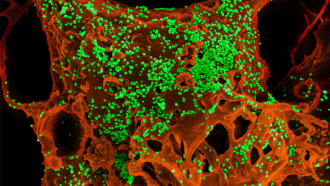 Health & Medicine
Health & MedicineExplainer: What is a coronavirus?
Coronaviruses are a diverse family of disease-causing agents. Some cause the common cold. Newer ones have emerged to pose more serious threats to people.
-
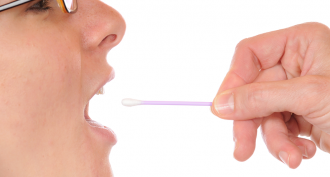 Genetics
GeneticsExplainer: How DNA testing works
Lots of companies will now test DNA from people and their pets. How do these gene-sequencing techniques work? We explain.
-
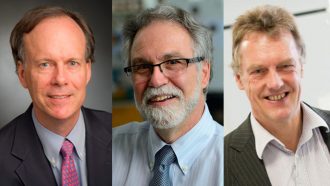 Life
LifeMedicine Nobel honors discovery of how cells deal with oxygen
Three researchers figured out the chemical processes by which cells not only sense, but also cope with, differing levels of oxygen. This could lead to new medicines.
-
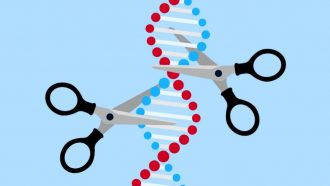 Genetics
GeneticsCRISPR enters its first human trials
A host of new human trials are using a gene-editing tool known as CRISPR to treat genetic diseases — from sickle cell and cancers to a blinding eye disorder.
-
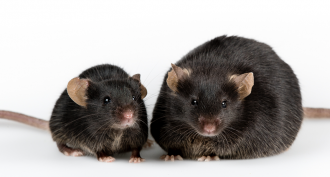 Microbes
MicrobesObesity in mice caused by defects in their immune system
Subtle defects in T cell function alter rodents’ microbiome and fat absorption, providing hints of what might also be going on in people.
-
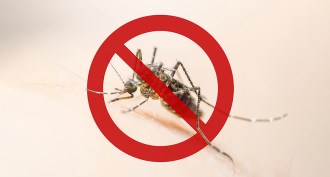 Health & Medicine
Health & MedicineA fungus plus a spider toxin equals a weapon to kill mosquitoes
A new weapon could help fight mosquitoes that spread malaria. It’s an engineered fungus that infects the insects — then kills them with a spider poison.
-
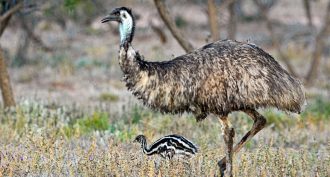 Life
LifeHow some birds lost the ability to fly
Some birds have evolved to stay on the ground instead of flying. Scientists think changes to bossy bits of DNA might be the reason.
-
 Genetics
GeneticsShaking hands could transfer your DNA — leaving it on things you never touched
After a long handshake, the DNA you trade could end up on things you never touched.
-
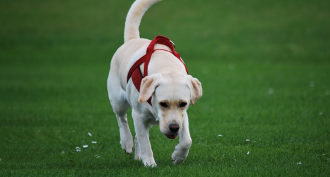 Genetics
GeneticsThe smell of fear may make it hard for dogs to track some people
Genes and stress may change someone’s scent, confusing search dogs.
-
 Science & Society
Science & SocietySome scientists ask for ban on the gene editing of babies
Scientists and research organizations have just issued calls for a voluntary ban on editing genes that can be inherited by people.
-
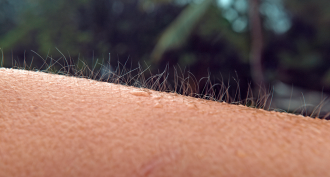 Health & Medicine
Health & MedicineGoose bumps may have hairy benefits
The nerves and muscles needed to set your hair on end and produce goose bumps also play a role in hair growth, new rodent data show. This suggests goose bumps might be useful in promoting hair growth.